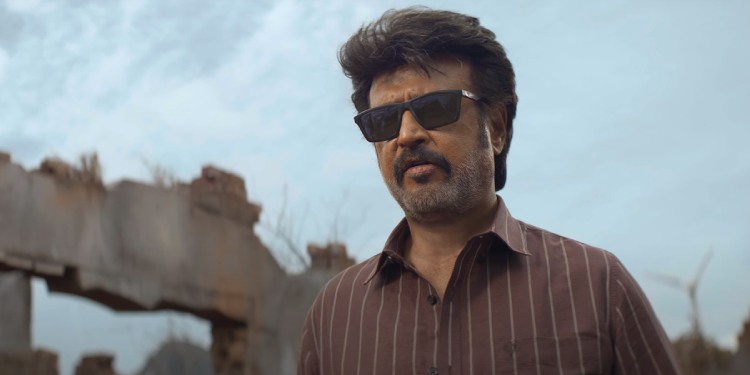I’ve been a Rajini fan since my teens. The excitement of First Day First Show (FDFS) has always been something no fan should miss, but this time, work delayed my trip to the theater by two days. What shocked me was the nearly empty theater—only ten people were seated. I even stepped out to double-check if it was the right screen. Sadly, it was. As the movie began, the person next to me opened his laptop and started working—work-from-home turning into work-from-theater! As a Rajini fan, it was disheartening, but as the film progressed, it became clear why. Vettiyan,which started as a promising action-packed thriller, ended up as a disjointed mess, lacking the logical consistency and depth a commercial thriller desperately needed.
Directed by Gnanavel, who had earlier impressed with Jai Bhim, I had great expectations like everyone else. The social consciousness of the director paired with Rajinikanth’s versatile acting should have been a winning combination—Rajinikanth’s efficient acting skills in character roles, as seen in films like Aarilirunthu ArubathuVarai and Mullum Malarum, haven’t been fully utilized in recent years. But alas, as the film unfolded ,I felt let down.
Vettiyan is a prime example of a director being pushed outside of his comfort zone. The balance between socially impactful cinema and the demands of a mass commercial film falls flat. The story is a chaotic mix of social issues and dramatic confrontations, lacking coherence and direction. At its core, Vettiyan aims to address how ed-tech companies exploit marginalized communities. This is an important and relevant issue, but the film loses its impact through forced character arcs and convoluted storytelling. Instead of focusing on the struggles faced by these communities, the plot meanders with illogical shifts and inconsistent character motivations, which weakens the authenticity of the message.
One of the film’s most glaring flaws is its abrupt narrative shift—from tackling a drug cartel to focusing on coaching center politics and justifying police encounters. What begins as a crime thriller suddenly veers into NEET exam issues and debates over encounter killings. These disconnected themes aren’t smoothly interwoven but forced together, and the transition is far too abrupt. To make matters worse, the film oddly introduces a narrative praising British educational reforms under Macaulay, suggesting that colonialism helped bring equality in education. This argument feels not only outdated but completely disconnected from the film’s central narrative—and socially unjust as well.
One of the most jarring moments in the film is the depiction of a rape occurring against the backdrop of a temple function. The sequence feels particularly out of place and raises questions about the necessity of the scene. Is the film trying to make a statement about questioning God in the midst of tragedy, or was it purely for shock value? This scene does little to enhance the narrative and instead leaves viewers feeling unsettled by its insensitivity and lack of context within the larger story.
Rajini’s character introduction is a high point of Vettiyan.His grand entrance as an “encounter specialist” is filled with Rajinism—slow-motion shots, intense close-ups, and the signature dialogue delivery that only Rajini can pull off. His character enters the frame with absolute confidence, hunting down criminals with ruthless efficiency, and delivering lines like, “Get your grave ready,” showcasing the fearless, larger-than-life persona that fans love.
However, after this thrilling start, the film loses its momentum. By the time Rajini returns in full force toward the climax, the magic of Rajinism had already faded. The moment where Rajini’s character finally hunts down the ed-tech company founder, responsible for exploiting marginalized students is another standout. The scene where the hunter becomes the hunted, with Rajini bringing justice, briefly reignites the film’s energy. It’s the kind of powerful moment fans wait for, but unfortunately, it comes too late to save the film from its disjointed narrative. By then, I was already tired and exhausted.
A major flaw lies in how Rajini’s character recklessly reveals the identity of an informer, exposing her to life-threatening danger. No police officer, especially a hero, would ever do that at any cost. Fahad’s character, who is a thief working unofficially for the police, even warns Sarnya, the school teacher, against sending a signed letter exposing the hidden stash of drugs, knowing how dangerous it would be. Despite this, Rajini makes matters worse by publicly revealing her identity. This blatant disregard for police protocol damages his portrayal as a seasoned, sharp cop and leaves me questioning the logic of the character’s actions.
Amitabh’s character, a retired judge, is brought in to investigate the encounter involving Guna, adding credibility to the inquiry. His role as a neutral figure sent to assess whether the encounter was legitimate should have given the story more depth. However, instead of focusing on the investigation, Amitabh’s character privately tells Rajini that Guna, the man killed in the encounter, was innocent. He further hints at the other side of Guna, saying, “There is another side to Guna.” This private conversation feels pointless when Amitabh’s character later holds a press conference to reveal the same truth publicly. As a retired judge tasked with investigating the matter, why would he reveal sensitive information to Rajini privately first? The inconsistency in his character’s actions weakens Amitabh’s role, reducing him to a mere plot device rather than a key player in the story.
Fahad’s character is similarly underdeveloped. Playing a thief who works unofficially with the police, his involvement in police investigations is never fully explained and feels disconnected from reality—rather unethical, even though his character is depicted as a flirtatious one. His inclusion in official police operations, despite his background as a thief, stretches credibility and feels out of place in an otherwise serious narrative.
The film also grapples with inconsistent plot points. For instance, the CCTV footage showing Guna misbehaving with a teacher is later contradicted when it’s revealed that they shared a cordial relationship. There is also no effort made to substantiate that it was a fabricated video. This inconsistency weakens the plot’s internal logic, leaving me confused about the actual events.
Rajini’s character later acknowledges his role in mishandling the investigation, admitting, “What we did was not an encounter but a murder.” As an experienced encounter specialist, this realization should have come much earlier, especially given the stakes. Also, while villains typically have the franchise to realize their faults, when a commercial hero does so, it tends to fall flat. Rajini’s belated moral reckoning feels forced, as if added purely for dramatic effect rather than genuine character development. This is where Gnanavel seems to be in battle with his own commercial aspirations. His eventual confession that there were “so many loopholes in the investigation” further highlights the character’s recklessness, which goes unaddressed for much of the film.
While Vettiyan attempts to tackle the complex themes of justice and exploitation, its inconsistent character arcs and thematic shifts hinder its overall impact. The film’s narrative, which begins with the potential for a high-stakes thriller, ultimately becomes a missed opportunity.
Visually, the film has its moments—no denying that. Rajinikanth’s dramatic helicopter entrance and the high-energy action scenes are classic Rajinism. However, saving his full iconic presence for the climax feels like a misstep. Fans expect his dynamic energy throughout the film, not just in isolated moments. Director Gnanavel, who brought his own brand of socially conscious storytelling to the forefront in Jai Bhim,seems to have struggled with balancing those important themes in a commercial setting.
In conclusion, Vettiyan feels like a wasted opportunity. While the film sets out to critique the exploitation of marginalized communities by ed-tech companies, the forced character arcs and convoluted plot dilute its message. Pushing a talented director into unfamiliar territory results in a film riddled with illogical plot points, weak character development, and missed chances to showcase Rajinikanth’s star power. It’s a disappointment, but the film does offer some constructive lessons that the team can hopefully take forward for future projects.

(Views expressed are personal.)

















